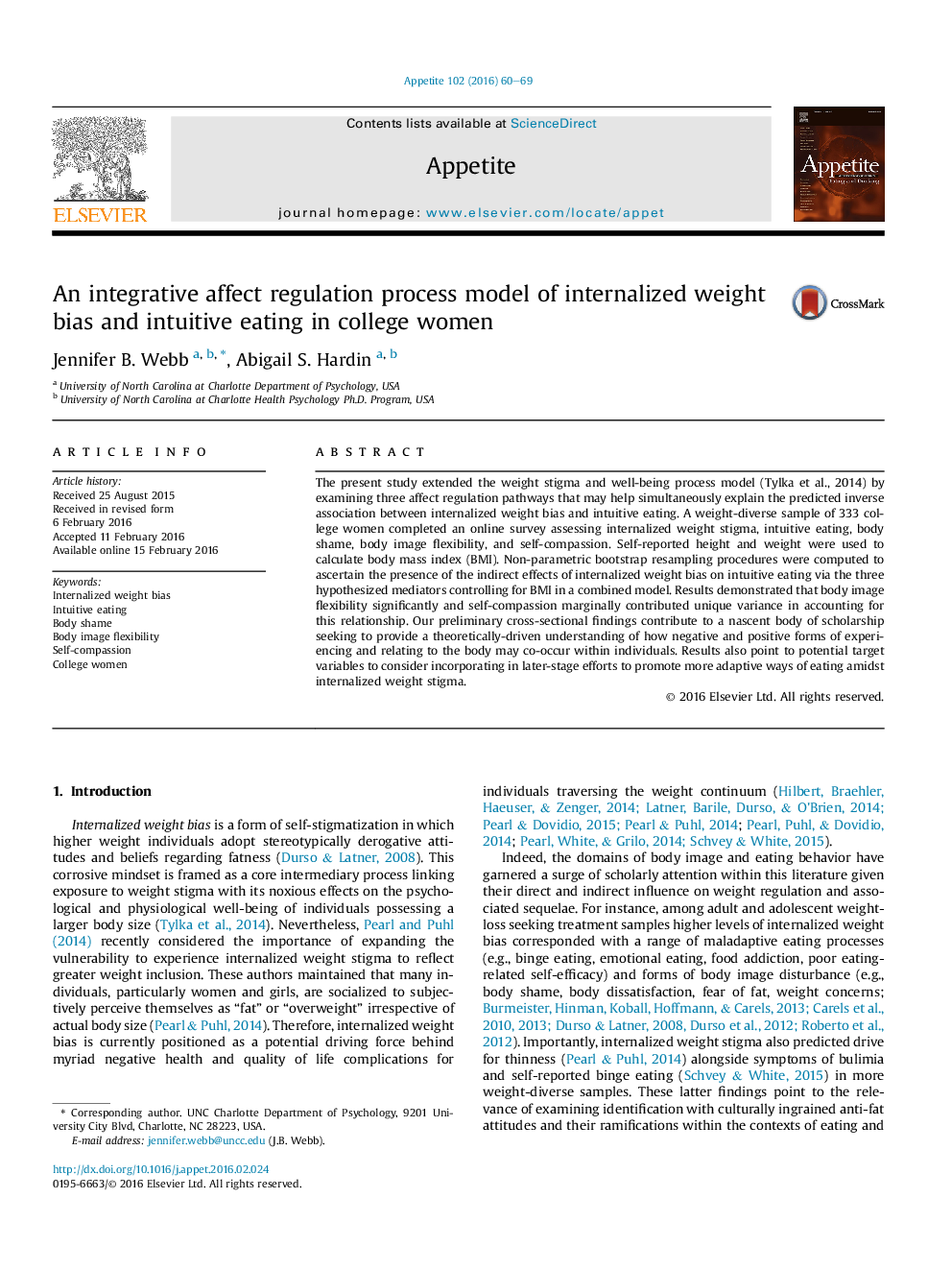| کد مقاله | کد نشریه | سال انتشار | مقاله انگلیسی | نسخه تمام متن |
|---|---|---|---|---|
| 939275 | 1475378 | 2016 | 10 صفحه PDF | دانلود رایگان |
The present study extended the weight stigma and well-being process model (Tylka et al., 2014) by examining three affect regulation pathways that may help simultaneously explain the predicted inverse association between internalized weight bias and intuitive eating. A weight-diverse sample of 333 college women completed an online survey assessing internalized weight stigma, intuitive eating, body shame, body image flexibility, and self-compassion. Self-reported height and weight were used to calculate body mass index (BMI). Non-parametric bootstrap resampling procedures were computed to ascertain the presence of the indirect effects of internalized weight bias on intuitive eating via the three hypothesized mediators controlling for BMI in a combined model. Results demonstrated that body image flexibility significantly and self-compassion marginally contributed unique variance in accounting for this relationship. Our preliminary cross-sectional findings contribute to a nascent body of scholarship seeking to provide a theoretically-driven understanding of how negative and positive forms of experiencing and relating to the body may co-occur within individuals. Results also point to potential target variables to consider incorporating in later-stage efforts to promote more adaptive ways of eating amidst internalized weight stigma.
Journal: Appetite - Volume 102, 1 July 2016, Pages 60–69
